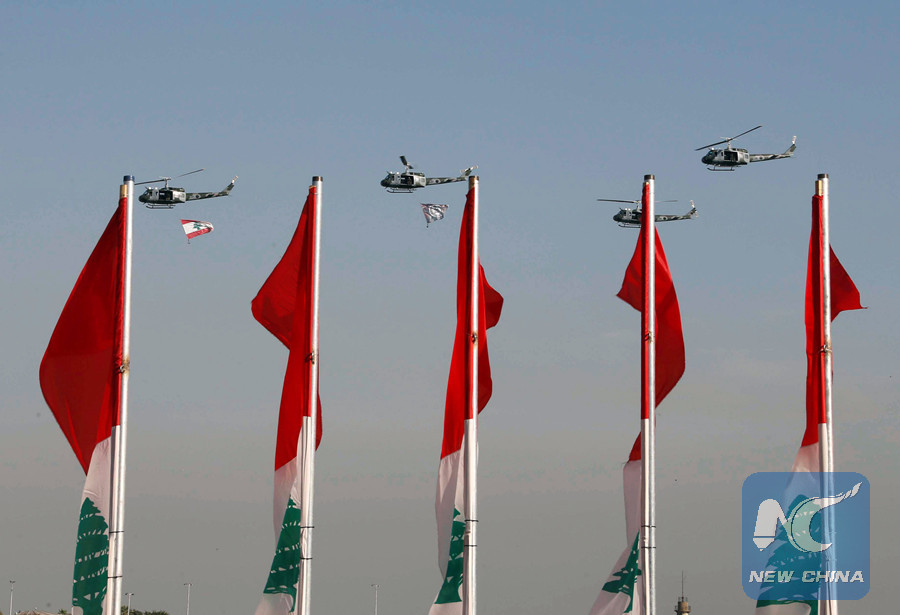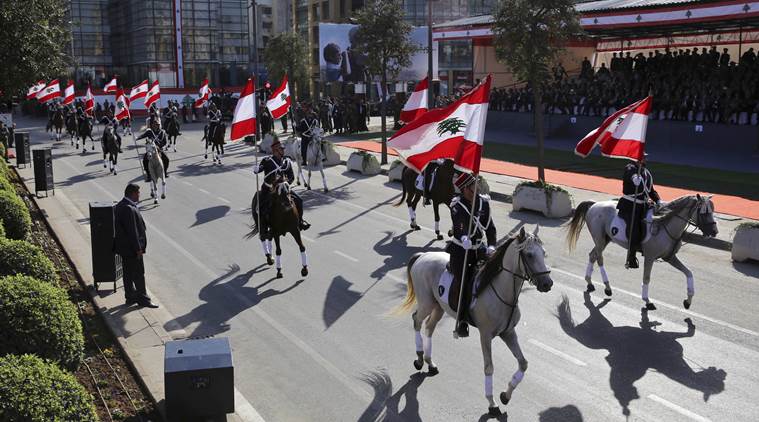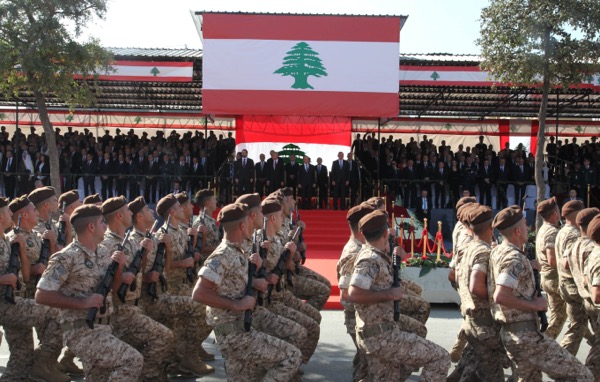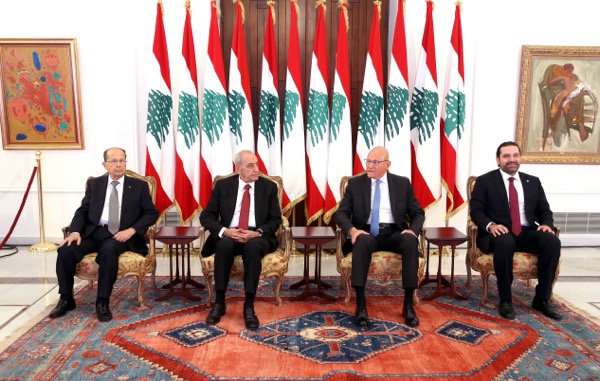



Lebanese soldiers marched in formation and helicopters flew overheard in
a military parade in central Beirut Tuesday headed by the newly elected
president, the first such celebration in two years, to mark the
country’s Independence Day. Armored vehicles and tanks rolled down a
major thoroughfare in downtown Beirut, soldiers on horseback marched to
military tunes, and a choir performed national songs while organizers
released balloons in the colors of the Lebanese flag
BEIRUT, Nov. 22 (Xinhua) — Lebanon celebrated Tuesday its 73rd Independence Day with an official ceremony including a military parade by the Lebanese Armed Forces and other Security agencies, staged at Shafiq al-Wazzan Boulevard in Downtown Beirut. President Michel Aoun, Speaker Nabih Berri, Prime Minister-designate Saad Hariri and Caretaker PM Tammam Salam attended the ceremony.
During the parade, hundreds of red, white and green balloons representing the colors of Lebanon’s flag were launched skywards after military helicopters overflew marching soldiers.
Aoun, Berri, Hariri and Salam later headed to Baabda palace where they received well-wishers.
Lebanese Independence Day commemorates the country’s liberation in 1943 after 23 years of governance by French Mandate that succeeded the Ottoman rule at the end of the First World War in 1918.
Aoun hailed on Monday the Lebanese army for “gaining citizens’ confidence and being their source of security and serenity,” calling for “liberating civil servants from the culture of corruption.”
He has said in a televised address to the nation on the eve of Lebanon’s Independence Day “when dangers threaten the country, the army remains its security valve and the firm core of its national unity.” “We must immunize independence through refraining from seeking help from foreign forces to achieve partisan interests at the expense of the public interest,” the president noted.
In addition to the pledges of economic growth and security, Aoun said in his oath of office that Lebanon must work to ensure Syrian refugees “can return quickly” to their country.
He also urged to endorse an “independent foreign policy” and to protect Lebanon from “the fires burning across the region.”
By Associated Press: Premier-designate Saad Hariri said he is still facing obstacles
bringing together a line-up that balances Lebanon’s delicate
sectarian-based political system. “The one obstructing is known. Ask
him,” Hariri told reporters as he left the presidential palace Monday.
Hariri didn’t name names, but local media has reported the struggle
between Hariri and Aoun on one side and powerful Shiite parliament
speaker Nabih Berri over the government line-up. At stake is the
distribution of so-called sovereign ministries, including the Defense
Ministry. The political parties are also bickering over amending the
current election law which divides seats among the different religious
sects. The current parliament has failed to amend the law, and has
extended its mandate twice amid criticism. New elections are scheduled
for May 2017.
According to the agreement that brought an end to the 15-year civil
war in 1990, Lebanon’s president must be a Maronite Christian, the
premier a Sunni Muslim and the parliament speaker a Shiite. The
government must reflect each sects’ respective power, an often daunting
task that is worked out mostly in backdoor bargaining among the
country’s traditionally fragmented politicians.
Meanwhile, the civil war raging in neighboring Syria for nearly six
years has highlighted the fault lines in Lebanon, as different groups
have allied with rival sides in the conflict. Many fear the spillover
from Syria would undo years of relative stability in this country of 4.5
million.
A Christian leader and strong ally of the Shiite Hezbollah group,
Aoun was elected by parliament as president on Oct.31, after Hariri
endorsed him, ending the longstanding deadlock between the old-time
foes. Hariri is a longtime critic of Syria and of Hezbollah’s support,
with hundreds of fighters, for the Syrian government in that country’s
ongoing war.
Meanwhile, Saudi Arabia, a close ally of Hariri and opponent of
Syria’s government, recently halted a $3 billion arms deal with Lebanon,
a decision linked to the kingdom’s tensions with Iran. Iran and
Hezbollah support Syrian President Bashar Assad.
In an Independence Day speech Monday evening, Aoun urged Lebanese to protect their unity against the region’s instability.
“The tension in the region caused fissures in national unity, and the
Lebanese started to feel that their stability is endangered,
particularly given the limitation of the armed forces capabilities in
the face of imminent dangers,” Aoun said. “In this situation,
reinforcing national unity becomes of extreme necessity and a priority.



